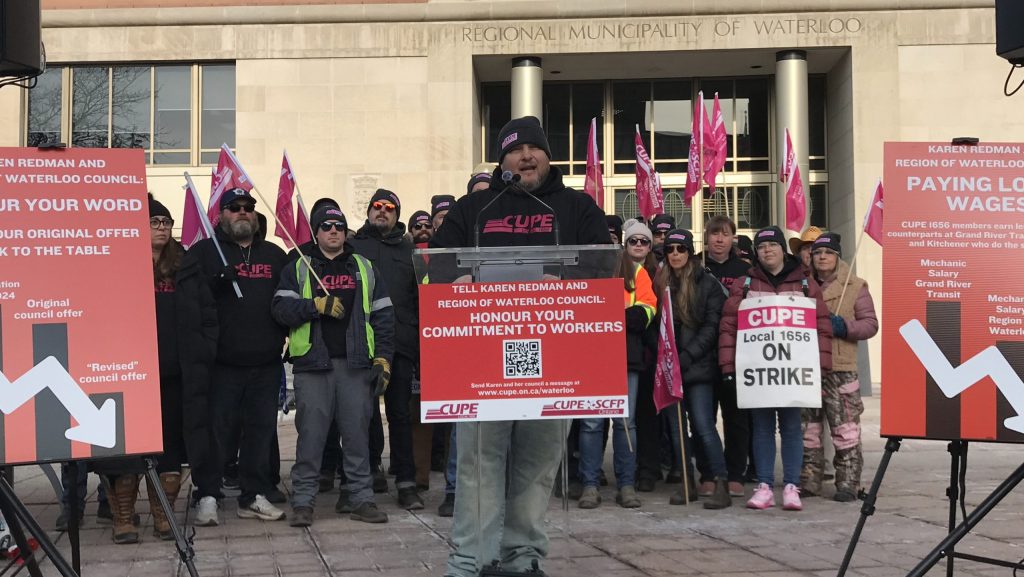Regional council to hear more on interim response to homelessness
Posted Aug 7, 2022 03:30:00 PM.
While homelessness remains top of mind for many local residents in the Waterloo Region ahead of October's municipal election, our region's councillors are set to hear more about plans to establish interim housing solutions at an upcoming Community Services Committee meeting on Tuesday.
Staff were directed to carry out that action by a motion approved by regional council on June 22 – now coming forward with a number of recommendations for interim housing solutions while their work continues.
The first recommendation being presented to council includes a motion to direct staff to develop a “Homelessness Master Plan” that would be responsible for outlining “strategies and resources” necessary to address the homelessness crisis in Waterloo Region. This includes the incorporation of “lived and living expertise, evidence-based practices and sector experts” into a longer term plan focused on preventing and ending homelessness.
Staff have also recommended that regional council consider “service enhancements” – including an evaluation of existing staffing models to ensure services are “trauma-informed and person-centred”, while also enhancing the importance of lived experience in regional hiring practices and staffing models.
In addition, that report also recommends that staff be authorized by regional council to “prioritize and implement” several interim housing solutions to assist those experiencing homelessness in the Waterloo Region – including the expansion of several existing support programs and the permitting of a “managed Hybrid Shelter/Outdoor Model.” According to staff definition, that model includes any facility or property with the primary purpose of providing temporary shelter that does not require occupants to sign leases or occupancy agreements – including “managed space” for outdoor tenting options.
Those recommendations are said to have come from a Community Engagement Process conducted by regional staff in mid-July, which included consultation with several local working groups – including the Unsheltered Working Group, KW Urban Native Wigwam Project, Kitchener Lived Expertise Working Group and more.
Additionally, staff have indicated that 53 members of local encampments completed a survey with staff to share their needs and preferences. Of those encampment residents that offered their perspectives, many are said to have expressed reluctance to access emergency shelters due to concerns of violence, theft and lack of privacy – as well as issues of accommodation for couples and pets. A vast majority of respondents – 96 per cent – expressed a preference for “permanent supportive housing”, as well as support for mental health, substance use difficulties and a connection with people they could trust.
Staff are also said to have heard from members of the business community, who expressed a “strong desire” to see a solution to homelessness in the Waterloo Region, as well as a concern for their ability to attract and retain customers, and for the safety and security of their staff.
Providing the committee with an estimate of costs for this interim response, staff expect additional homelessness program funding beyond what is currently would be required, including support from upper levels of government, as well as land or buildings that could require by-law amendments and municipal support. Providing a rough cost breakdown, staff expect an interim response running from September 1 to December 31 of 2022 would cost just over $3.2M, though they note that implementation would likely require a longer time frame.
With regards to the next steps, staff have indicated the development of a Homelessness Master Plan's framework, process and timeline could be complete by the end of the year, with a plan headed to council for consideration sometime in 2023.








